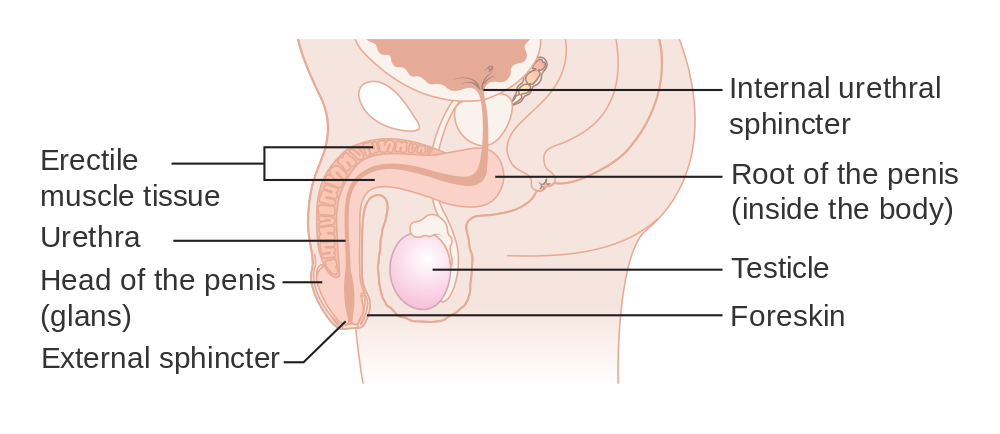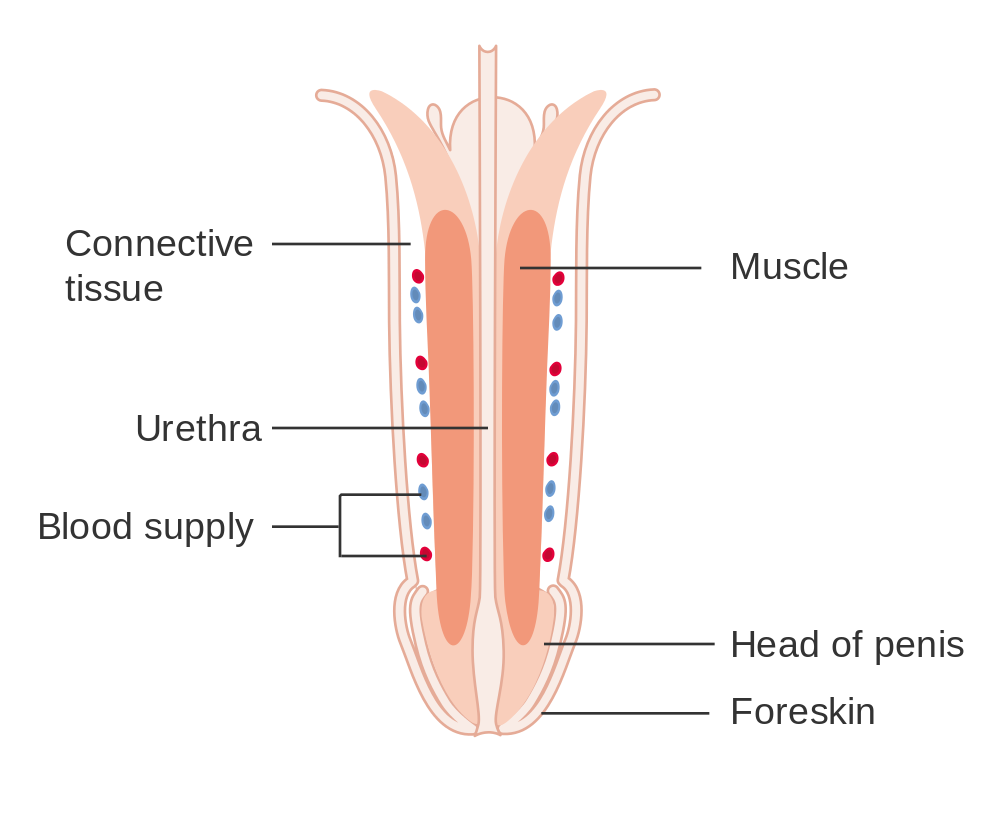Penile cancer
About 50* men are diagnosed with penile cancer in Ireland every year. It is most common in those over the age of 50.
Symptoms
Learn about the signs and symptoms of penile cancer. You are more likely to survive cancer if you find it at an earlier stage.
Treatment
There are a number of different treatments available for penile cancer. Your medical team will explain the best treatment options for you.
What is penile cancer?
Penile cancer is a rare type of cancer that occurs on the surface of the penis or in the penis. There are about 50 diagnoses of penile cancer in Ireland every year.* It most commonly happens after the age of 50.
Almost all penile cancers are squamous cell cancers. Squamous cells are found in the skin and cover the surface of many parts of the body.
What is the penis and what does it do?
The penis is the male sex organ. It also allows urine (pee) to leave the body.
It is part of the male reproductive system. When the penis is stimulated, the penile arteries dilate and the muscles contract. This causes an erection, which is necessary for sexual intercourse. Part of the penis – the urethra, which is a narrow tube that runs the length of the penis – transports semen (sperm) from the testicles to outside the body.
The urethra is also part of the urinary system. It transports urine from the bladder to the outside of the body. There is a valve (sphincter) in the root of the penis which, when relaxed, allows urine to flow through the urethra and out of the body.

The penis has three main parts:
- The root
- The body (shaft)
- The head of the penis (glans)
The head of the penis is the cone-shaped end of the penis. It is covered with a loose layer of skin called the foreskin. Sometimes males are circumcised, which means this layer of skin is removed. The opening of the urethra is at the tip of the glans. The penis hangs in front of a pouch of skin called the scrotum. The scrotum holds both testicles.
What are the types of penile cancer?
There are a number of different types of penile cancer, depending on the kind of cell in which the cancer begins. The most common types include:
Squamous cell cancer: This accounts for about 90% of all penile cancer cases. It starts in the flat skin cells (squamous cells) on the surface of the penis. The most common sites for this cancer are the head of the penis (glans) or the foreskin (if you are not circumcised). Squamous cell cancers that are found early are usually curable.
There are various subtypes of squamous cell carcinoma – your doctor can give you more information about your type of cancer.
Melanoma: This is where the cancer develops in the skin cells that give the skin its colour (melanocytes). Melanomas are usually found in skin that is exposed to the sun, but they can occur in other places such as the penis.
Sarcoma: These rare cancers develop in the connective tissues in the penis, such as the blood vessels and smooth muscle.
What increases my risk of penile cancer?
As with most cancers, the exact causes of penile cancer are not fully known. However, there are a number of factors that increase the risk of developing penile cancer. These include:
This is a common virus that most sexually active people have been exposed to, and that usually causes no harm. However, infection with some types of HPV increases the risk of penile cancer – HPV is found in about half of all penile cancers.
The virus is passed from one person to another – sometimes during sexual activity – but it can spread by skin contact with a part of the body already infected.
In most cases the infection will clear itself without treatment. However, it can become chronic and cause penile cancer. Those who are not circumcised may be more likely to have long-term issues with HPV.
Circumcision removes all (or part) of the foreskin. If you are not circumcised, the foreskin of the penis can sometimes become tight and does not pull back easily (phimosis). Penile cancer is more common in men with phimosis. Sometimes, if you are not circumcised, secretions (smegma) can build up underneath the foreskin. This build-up can irritate and inflame the head of the penis and foreskin, which can increase your risk of cancer.
Smoking increases the risk of penile cancer.
The risk of penile cancer increases with age – it is most common over the age of 50.
Having the HIV infection or Aids increases the risk of penile cancer.
Psoriasis is a skin condition that is sometimes treated with light therapy (phototherapy) and drugs called psoralens. This treatment – PUVA – appears to increase the risk of penile cancer.
Having a risk factor doesn’t mean you will definitely get cancer. Sometimes people with no risk factors get the disease. If you’re worried, talk to your GP or talk to one of our cancer nurses. Call our Support Line on 1800 200 700 or visit a Daffodil Centre.
Note: We use gender-inclusive language. We sometimes use woman/man and female/male when they are needed to explain a person's treatment and care - for example, talking about hormones or body parts - and when needed to describe research or statistics.
Medical content reviewed by Ivor Cullen, Consultant Urologist and Andrologist, Eva Browne, Urology Specialist Registrar, Anne Daniels, Urology Nurse Specialist (2020).
Talk to a Cancer Nurse

Support Line
Our Daffodil Centres

*The Irish Cancer Society uses the most up-to-date cancer statistics from the National Cancer Registry Ireland, available on www.ncri.ie


